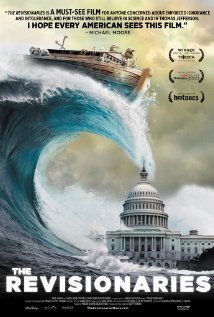
Power & Dominant Literacies
On Thursday we addressed the two articles (Street and New London group) and during the discussion, Professor Jaxon mentioned that those in power dictate what literacies are the assumed standards. It reminded me of similar content discussed in a previous politics course of mine- the reality that hidden histories exist, and what we read in the news, in textbooks, and other sources may not be as inclusive or unbiased as we once thought. In elementary/secondary school, we were told that Columbus was a great explorer (unfortunately, our textbooks forget to mention the whole rape and pillage part of his so-called legacy). As time passes and we begin to access “other” sources of information and education (non-mainstream literacies), we understand that educational agendas constantly surround us, and our once romantic notions of nonpartisan, chaste education is replaced by cynicism.
About a month ago, I found myself at my parent’s house being a couch potato, flipping through the limited channels of basic cable. It wasn’t until I came across a PBS airing of the documentary film titled “The Revisionaries” that I arose from my vegetative state. The documentary involved the Texas School Board of Education and their members advancing agendas of Creationism and other religious issues in public education and textbooks. According to the Kino Lorber Corp., the documentary “highlighted how their tactics (Texas School Board members) have had the effect of rewriting key tenets of U.S. democracy and are affecting educational policies at the national level – for generations to come.”
I would recommend this film to everyone, for it asks the viewer to consider the ethical dilemmas of the omission, addition, and re-writing of the literacies we teach. It exposes the reality that those in power decide what the people learn, regardless of the validity of their reasoning(s). What frustrated me most about the film was that the small amount of board members (about fifteen or so) were given the authority to decide what will be administered to the masses. The film exposes what literacies the Texas School Board of Education values, while it truly asks the viewer to assess the effectiveness of the current educational decision making systems we have in place. Although it is boring at times, it is highly political and thought-provoking, and definitely worth watching (especially for this course).
You can watch the documentary on the PBS website: http://video.pbs.org/video/2325563509/

 Website:
Website: